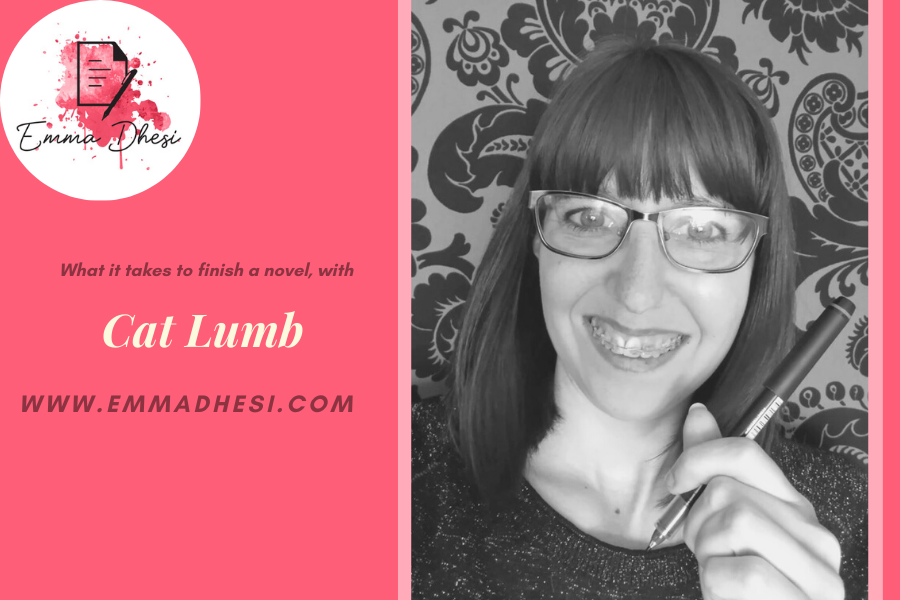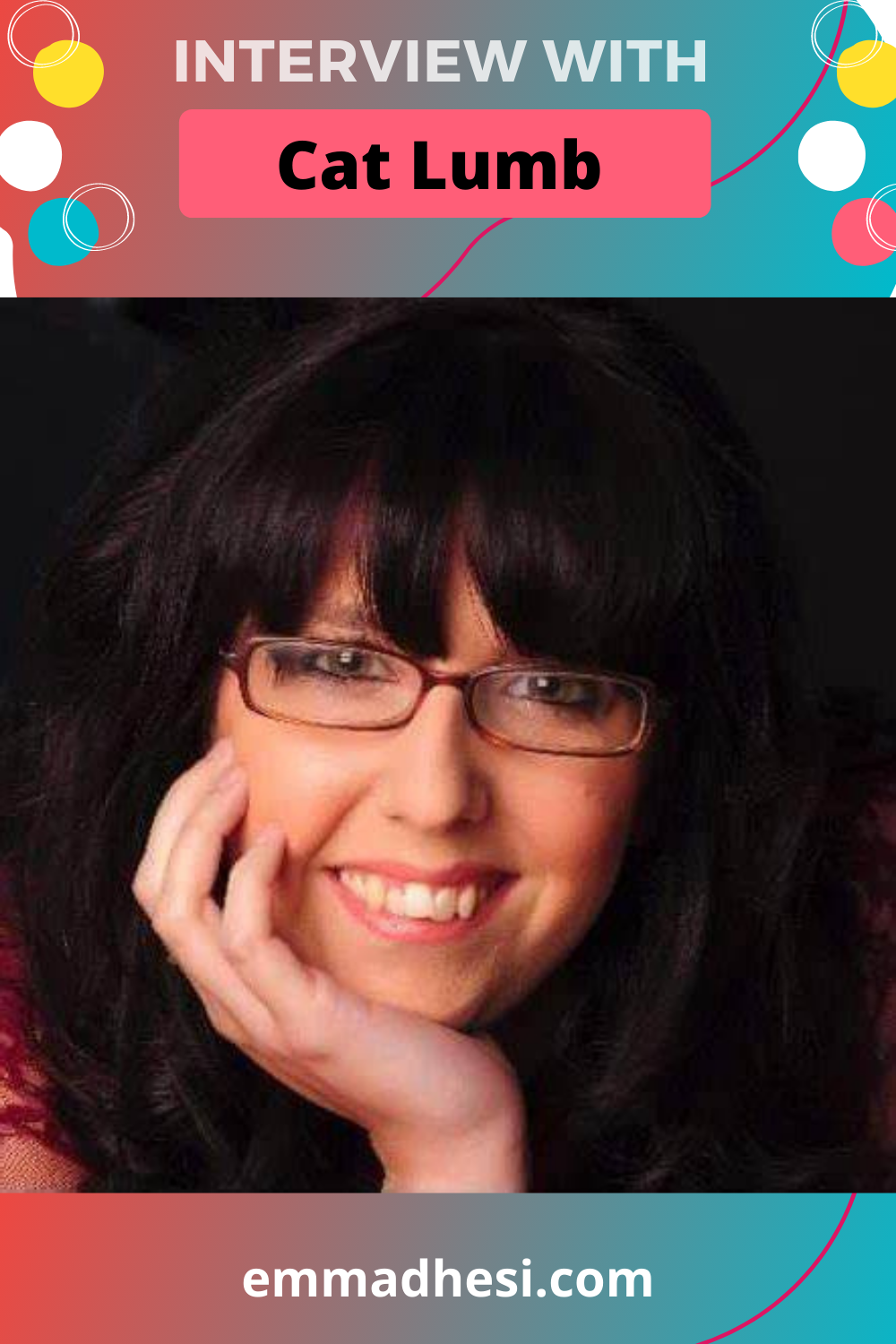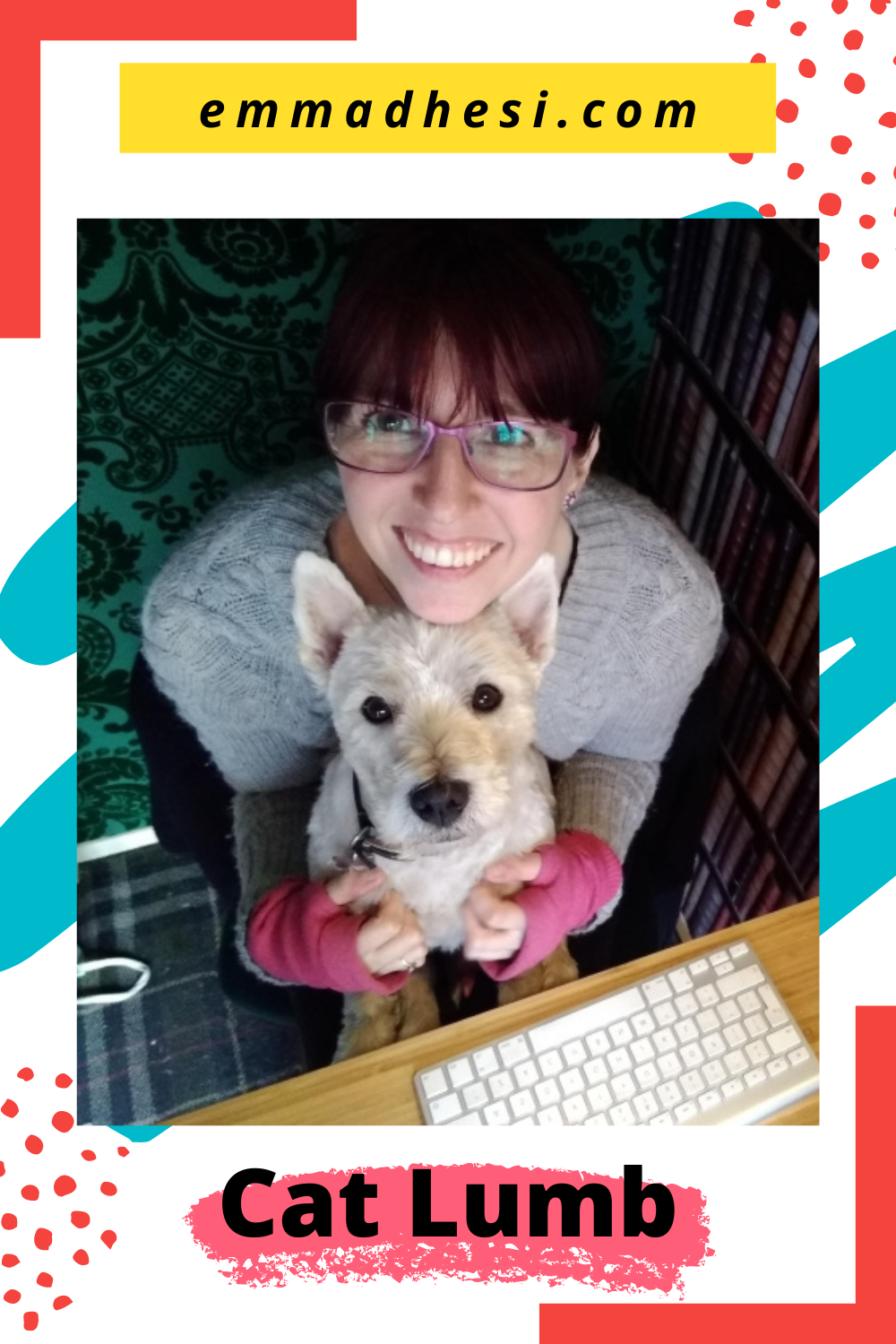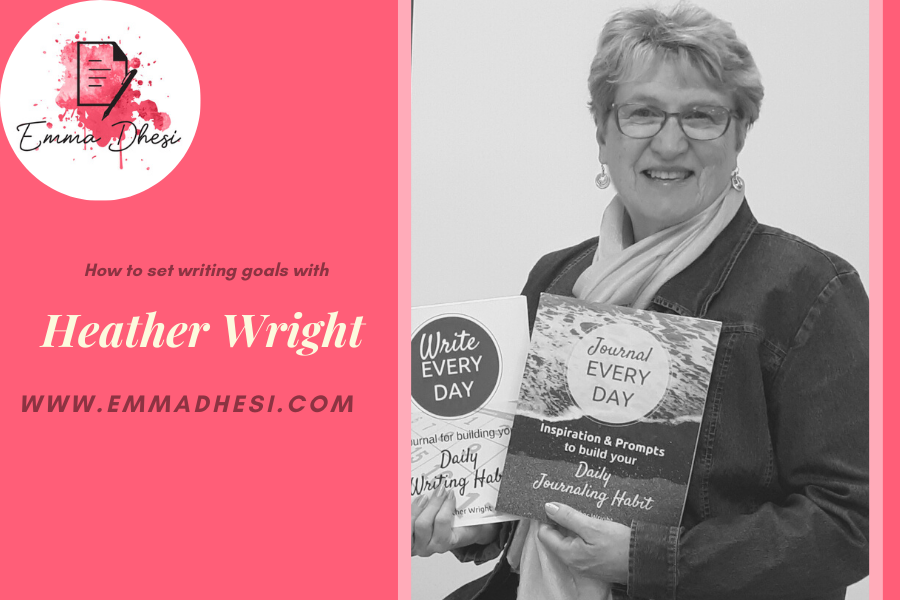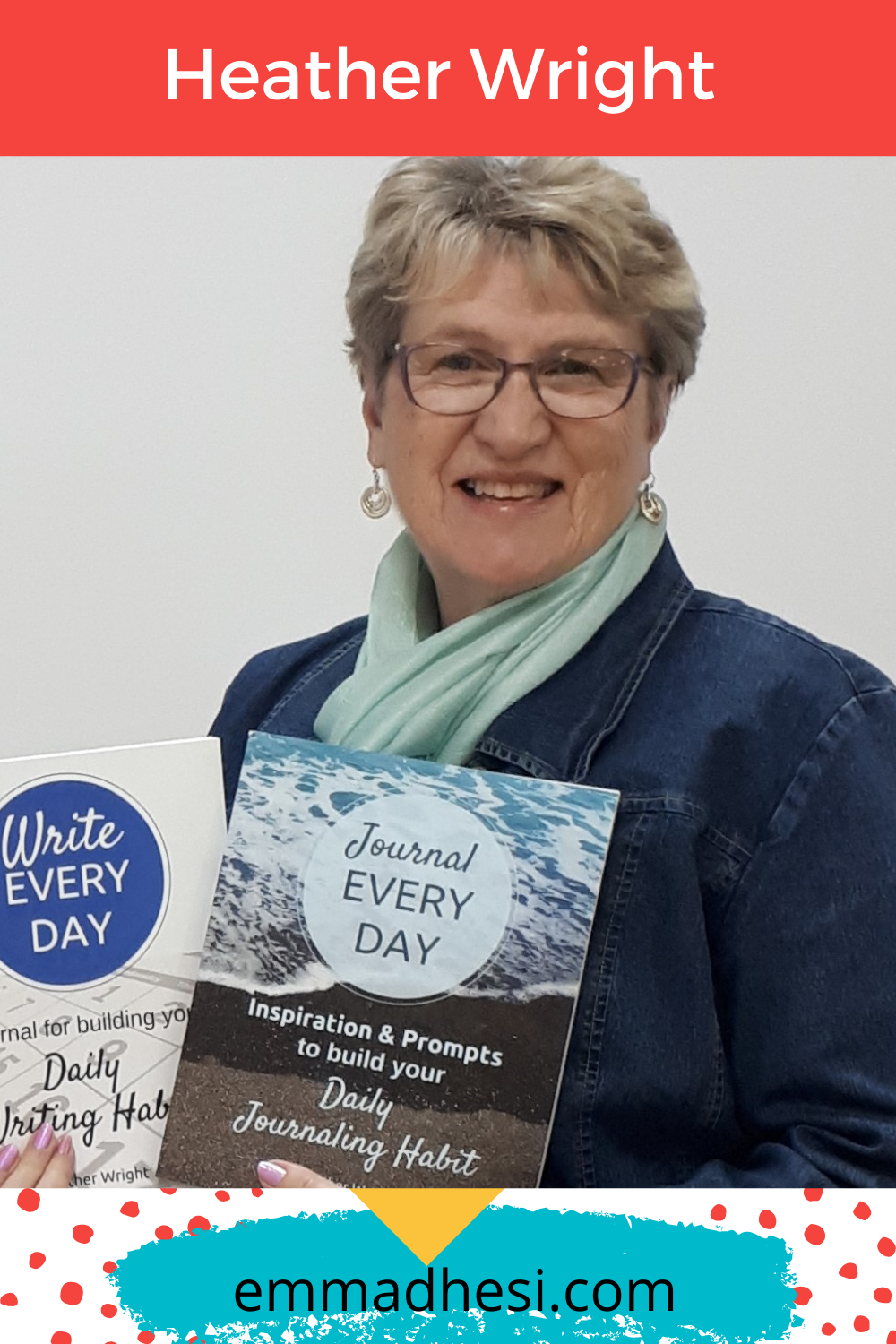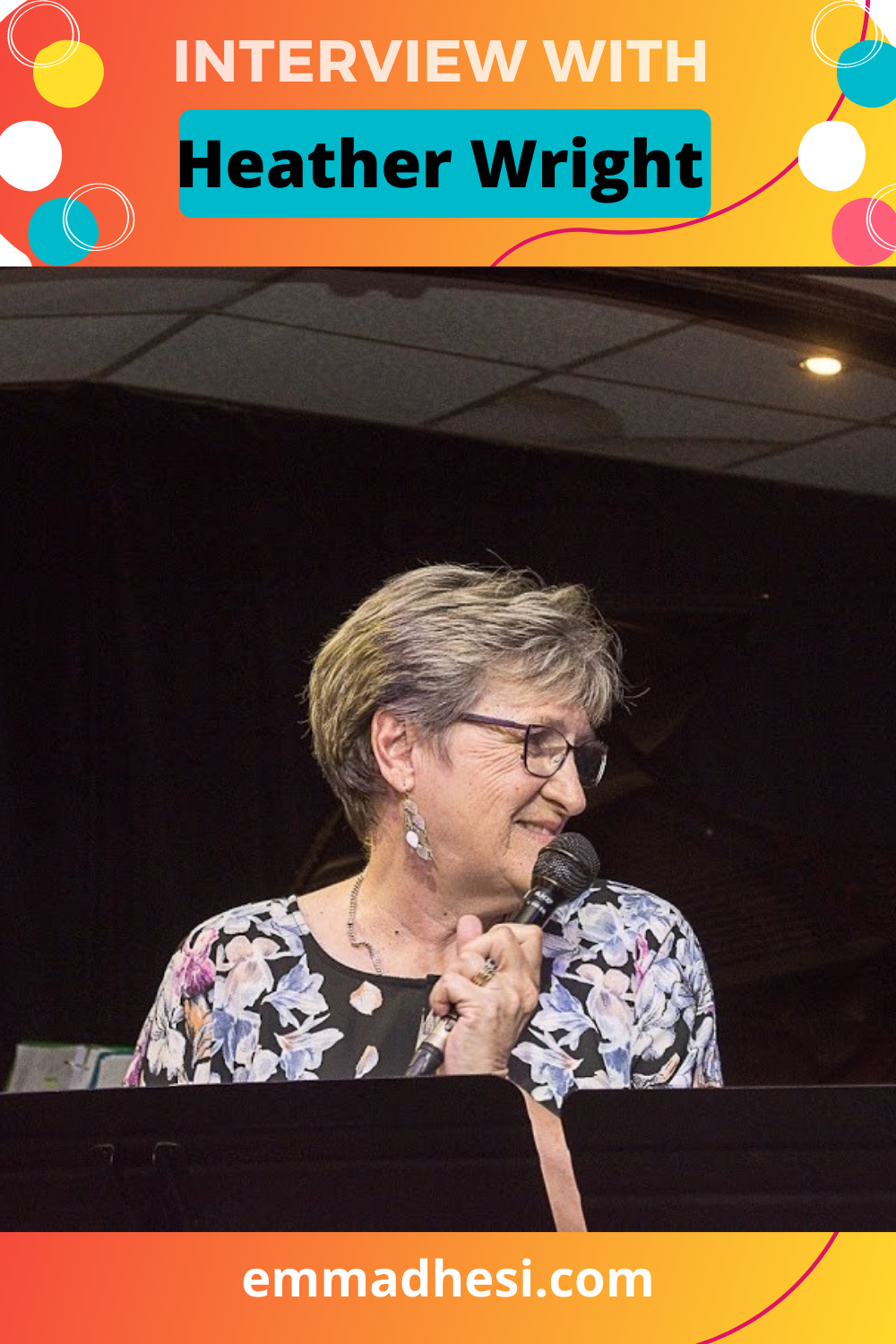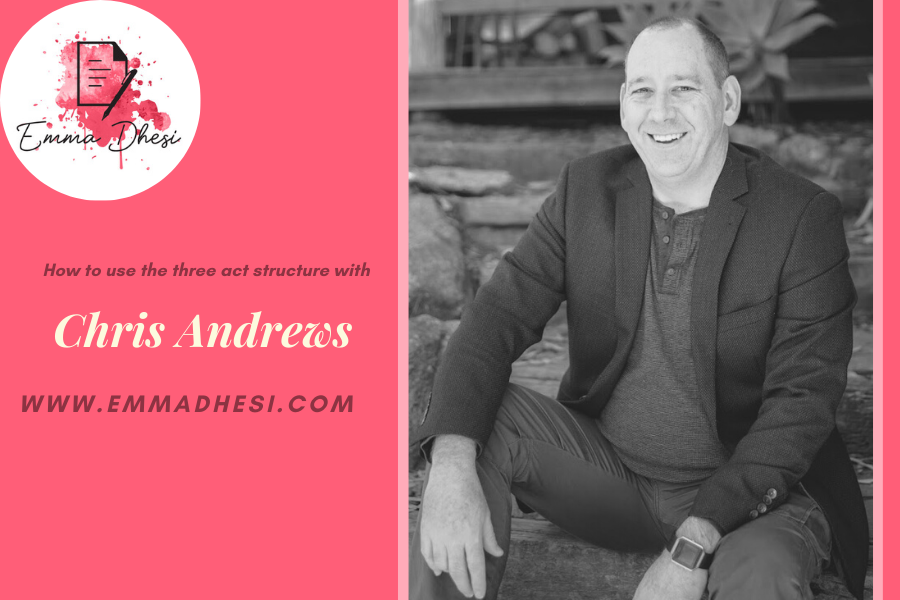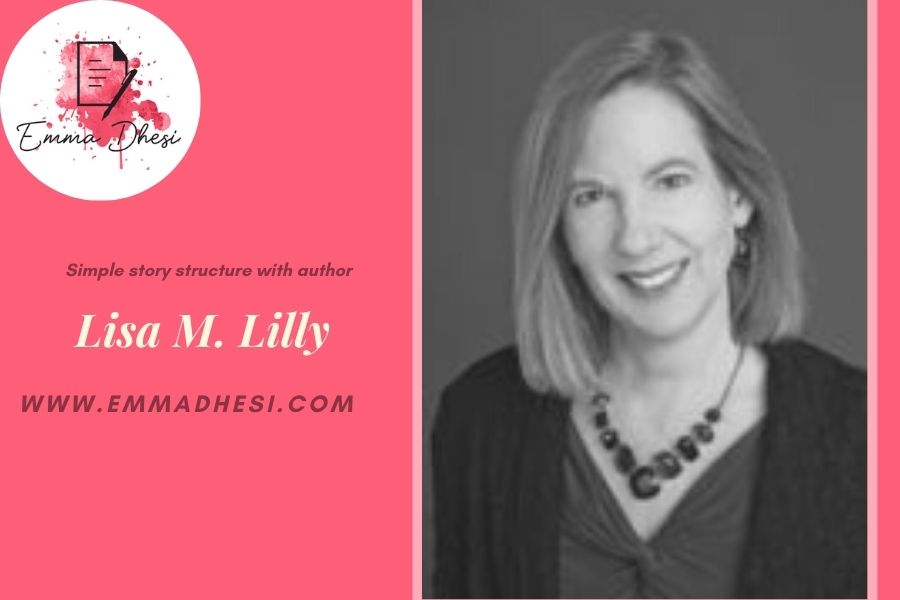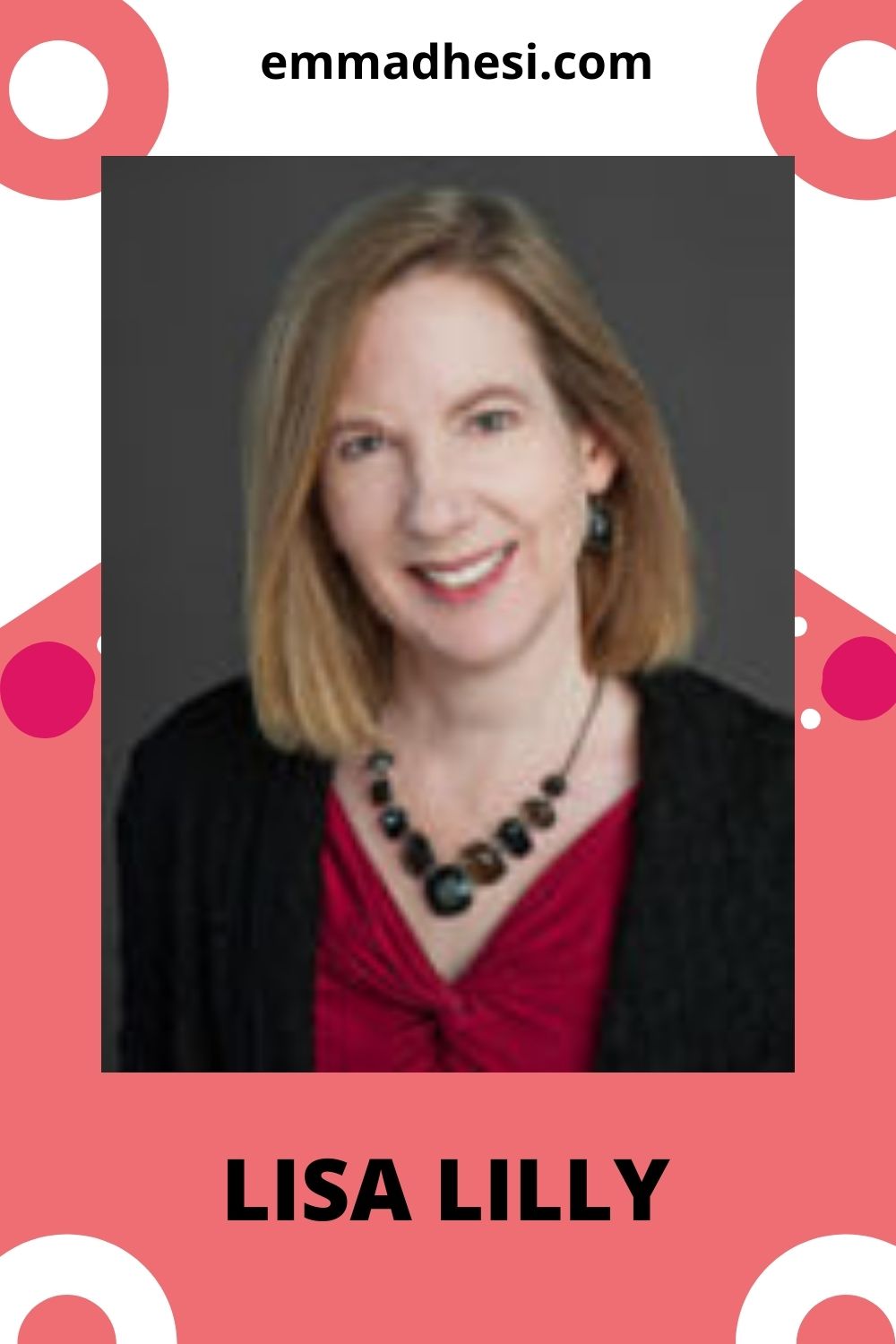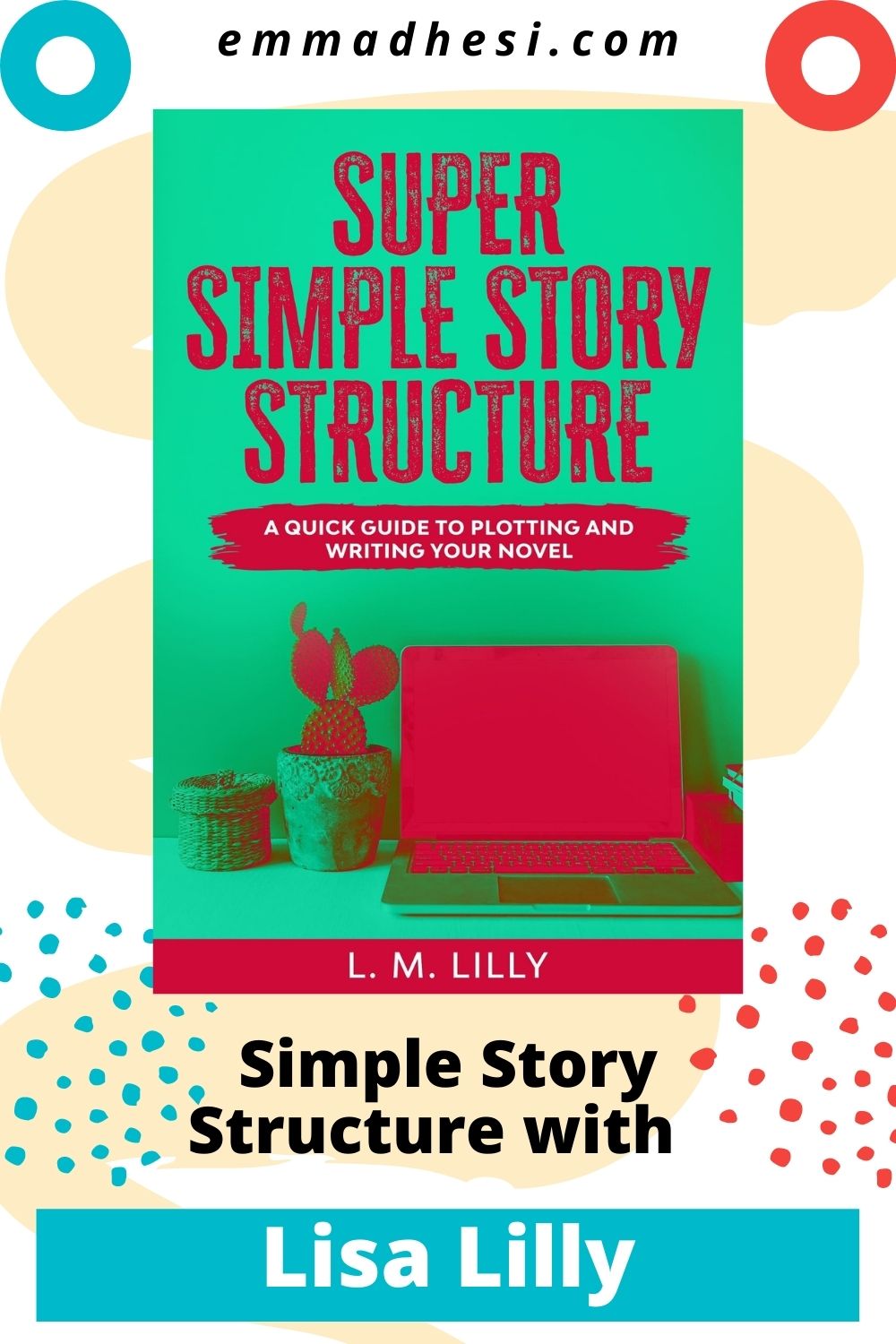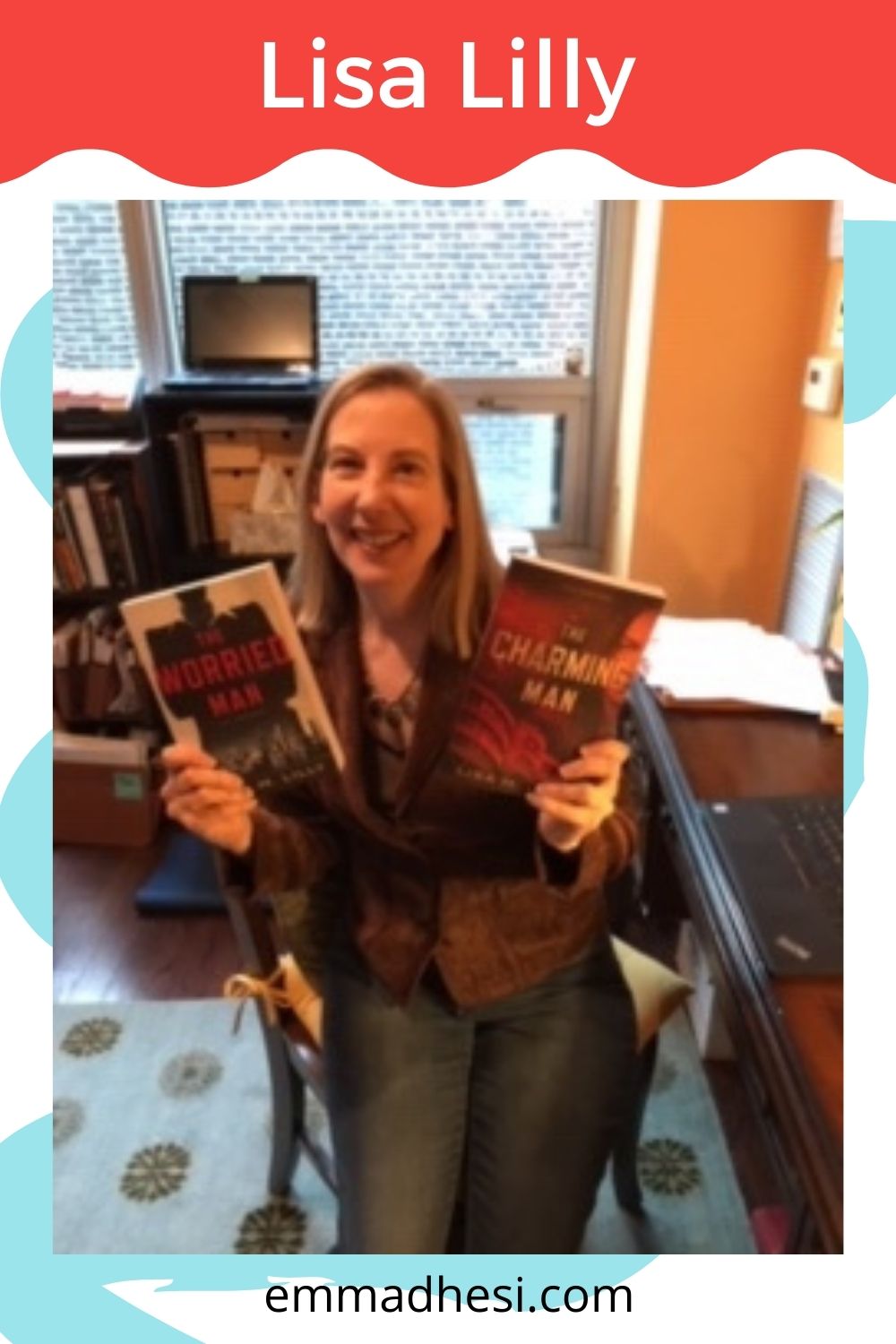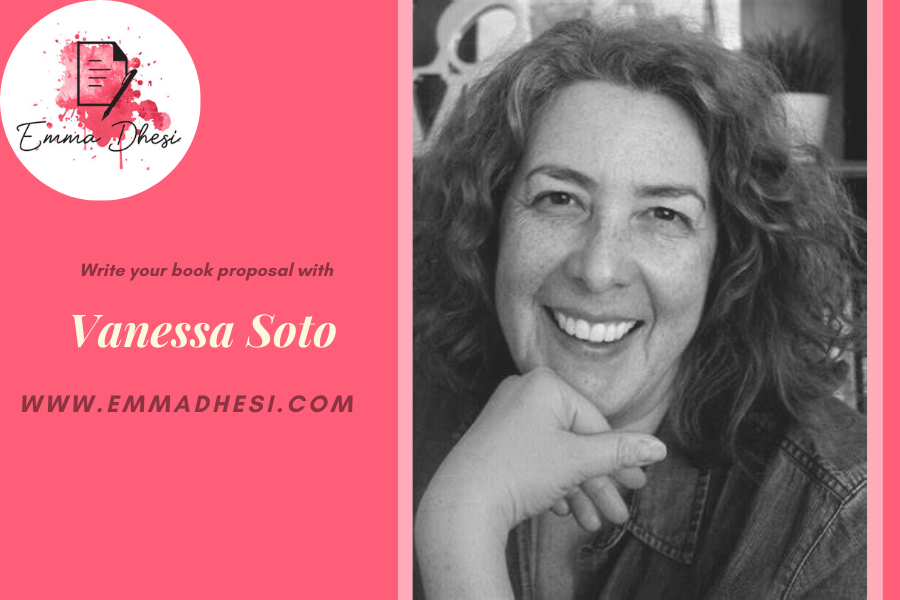
Write your book proposal with Vanessa Soto
Write your book proposal with Vanessa Soto
Interview with Vanessa Soto
Emma Dhesi 00:00
Hello, I’m Emma Dhesi and welcome to another episode of turning readers into writers. If you’re brand new here, welcome. And here’s what you need to know. This is a community that believes you are never too old to write your first novel, no matter what you’ve been up to until now, if you’re ready to write your book, I’m ready to help you reach the end, I focus on helping you find the time and confidence to begin your writing journey, as well as the craft and skills you need to finish the book.
Each week I interview debut authors, editors and industry experts to keep you motivated, inspired, and educated on all things writing, editing, and publishing. If you want to catch up, head on over to emmadhesi.com, where you’ll find a wealth of information and tools to help you get started.
Before we dive in, this week’s episode is brought to you by my free cheat sheet 30 Top Tips to find time to write. In this guide, I give you 30 ways that you can find time to write in the small gaps that appear between the various errands and tasks and responsibilities that you have in your day to day life. I know you might be thinking that you don’t have any time to spare, but I can guarantee these top tips will give you writing time you didn’t think you had.
If you thought writing always involved a pen and paper or a keyboard. Think again. If you thought you needed at least an hour at a time to write your manuscript. I help you reframe that you won’t be disappointed. Get your free copy of 30 Top Tips to find time to write by going to emmadhesi.com /30 Top Tips
Okay, let’s dive in to today’s episode.
Vanessa Soto is a book proposal coach who works with first time authors with a big idea for a nonfiction book.
She helps women generally but all are welcome with a POV to get their book idea out of their head and into a standout book proposal that they will feel confident pitching to literary agents and editors.
She’s the founder of Vanessa Soto book coach, and the host of she has a book in her podcast, which launched earlier this year.
So let’s find out a little bit more about Vanessa and how she helps those first time writers get their book proposal written.
Well, welcome, Vanessa, thank you so much for being with me today.
Vanessa Soto 02:33
Thank you so much for having me.
Emma Dhesi 02:36
So I wanted to ask you, I know, you know, what attracted you to publishing in the first place, and what sort of led you to being the coach that you are now?
Vanessa Soto 02:46
Well, I actually have a background in marketing. And that has been something I’ve done for many, many years. But before that, in my formative years, as a young person, as a teenager, I was always that person who was the editor of the newspaper, I always wanted to be, well, I wanted to be a magazine editor is what I intend to do. And then somewhere along the way, I found myself in advertising marketing.
And then later in life, I was trying to figure out what do I really want to do. And that and then I kind of reconnected to publishing, and found the world of book coaching, specifically non-fiction book coaching. Because while I personally love to read fiction, what I identified that I like to work with other people on actually kind of pulls on both my editing and publishing interest, as well as that marketing background that I have.
And that is putting together book proposals. Because a book proposal, like a nonfiction book proposal, is really, it’s a packaging exercise, it’s putting together your book idea, it’s packaging, it takes a lot of marketing skill. So um, so that’s kind of how it kind of, actually, while it’s publishing, it’s, it’s secretly a little bit of marketing to.
Emma Dhesi 04:18
I like that though, isn’t I like, it’s one of the things I like about publishing and writing generally, is, we can come to it slightly later in life, and we can bring all the skills that we’ve had before. And it’s nice when they all kind of dovetail together when we find that passion and that niche that just fits everything else that we’ve been doing. And we can step into it with a lot of love. I really like that.
Vanessa Soto 04:41
I think so. Yeah. And I appreciate that also, and I think one of the other little pieces that I use a lot in my book coaching is another kind of secret skill is project management because putting together a book proposal, I work with clients for usually about six months.
It’s a complex project, there’s a lot of moving parts. And then all the years of working in marketing and advertising, those are complex projects with lots of moving parts. So it’s, it’s that layer kind of fits under there too.
So it is what you’re talking about is using all those different skills from the different times of my life. And that feels good feels like, you know, fat kind of satisfying and fulfilling to use them all.
Emma Dhesi 05:23
Yeah. So you mentioned that you work with nonfiction writers. And I’d love it if you could share with us some of the more interesting kind of storybook ideas or proposals that you’ve worked on it, you know, subject-wise or even personality-wise, I guess.
Vanessa Soto 05:39
Sure, sure. Absolutely. Well, I’m working with a wonderful client right now on a cookbook. And, you know, so when you think about nonfiction, you might think about anything from academia to memoir, which kind of crosses genres to cookbook, which do fit in there, there’s their self help. I do tend to work with a lot of self help authors, personal development, that kind of space. But yeah, I’m working with a wonderful cookbook author right now.
And what I love about that is, it draws on kind of family stories, as well as like, her passions around food, she happens to come from a background, she grew up in India, and then traveled a lot, then landed in Canada, and then developed a passion around like, you know, nutritious foods and feeding her family in a healthy way.
And then fell upon the the the realization that all of the foods that she grew up eating in India, were exactly the most nutritious healthy food, she wanted to feed her family. So she so you know, that’s, that’s just like a wonderful story to share. And I learned about it while I’m helping develop the book proposal. So, you know, I’m stocking my own pantry now with more tumeric and more lentils.
And I’m like, making sure that I’m doubling up my vegetable batches and things I’m learning from my clients. So that’s, that’s one that’s top of mine, just because I’m working on it with her right now. Yeah, so you know, you learn things. And then, of course, I have worked with a couple of memoir, writers. And those are just so interesting.
Because, again, it’s the stories, right, it’s people’s lives and it’s the through lines and what what you do with memoir, when you’re putting together a book proposal is I don’t work with them on the memoir itself, necessarily, they, they you, I usually will refer them to someone else if they need help with the writing of the of the book, but, um, but with identifying who would want to read that memoir, and it’s not usually everyone, but finding who what, what are the through lines between that story and who else would want to read it? and, and that’s just like, really interesting to me, because, because other people’s stories, they’re interesting to other people for different reasons.
Like, you know, sometimes you don’t want to read stories that are just like your sometimes you do, but oftentimes, you want to read stories that are very different from yours, but have maybe some little nugget of interest. So I enjoy the memoir quite a bit, yeah.
Emma Dhesi 08:39
Yes, I like memoir as well. It’s emmm and even when yeah, quite often I go to it, if I’m looking to get a different perspective on something I’m experiencing, just to help me with what I’m doing at that moment in time. When Yeah, other people’s lives, too, are fascinating, and what people go through…
Vanessa Soto 08:57
Where they land, where they started, where they go.
Emma Dhesi 09:00
Yes, yes. I love it! Um, okay, get carried away with that. But let’s…
Vanessa Soto 09:06
We really could, yeah…
Emma Dhesi 09:09
Let’s come back to you and, and your clients. So how can your clients decide? And more anybody listening? In fact, they decide if they should self-publish a nonfiction book, or whether they should pursue a traditional deal?
Vanessa Soto 09:25
Yeah, I mean, that’s pretty big question. So there’s a lot of different things to consider. But at the highest level, the types of things that I talk about with folks, when they’re trying to make that decision, are who do they want to reach with their book?
And what are their goals for their book? So those are kind of like the two key questions that we dig into. So at the broadest level, if you want to reach a really broad audience, You probably will have a better opportunity in traditional publishing, if you have very niche audience.
And again, there’s a broad broad strokes, you might have a better opportunity with with a niche audience better opportunity with self publishing and then if you want to make and then in terms of your own personal goals for your project, if you want to hit bestseller list, like if you’re thinking to yourself like that is my primary goal is I want to be on bestseller list, I want to be on the Today Show, if those are your types of goals, and I’m not, you know, laughing because those are funny goals or bad goals.
But if, if those are your, your types of goals, then you need to be thinking about traditional publishing, that doesn’t mean that you’re going to get a book deal. But those are the types of things that you need to be thinking about, because self publishing is not going to land you in those types of opportunities.
If your goals are more like I want to grow my business, I want to have a book that I can give out when I do speaking opportunities, I want to have a stack of books that I can hand out, or I want to book I can mail to my clients when you start working with them, then you can self publish, those are just like very broad strokes of how you could make the decision and then there’s so many other decisions in there things like, yeah…

Emma Dhesi 11:27
Gosh, she’s gonna pick up on the, when you were saying about if you have a niche, a particular niche you’re interested in appealing to? Why is self publishing better for more niche markets?
Vanessa Soto 11:40
Well, it depends on how niche we’re talking. So if it’s niche, niche niche, like, there’s only 100 people out there who will ever buy your book, then really, really self publishing is right for you. Right? If it’s if it’s, if it’s niche, like, it’s women entrepreneurs, if we’re thinking, then that’s not that small, but niche, and right, and you could absolutely, you know, to consider traditionally publishing, that’s why it’s a pretty challenging question to answer and there’s so many different ways, I’m actually working on launching a new episode, my podcast, just this, I think it’s gonna launch next week on this topic.
So we can dig in, and people can dig into a little bit more on if they want to, but it’s a hard one, because there’s some other things in there around things like platform.
So traditional publishing, it’s getting more more competitive to get a book deal. traditional publishers want to see you having a big platform, they like it, they like you to have a large following on social media.
That said, many agents will say that if they love your idea, they will hang out while you build your platform, you know, if they see something there, or they if they see that, uh, you know, the client that I mentioned with the cookbook, she has a, she appears on national television in Canada, quite a bit. Um, she has a quite a solid platform as well.
They’re not massive. But I think there’s like these different ways into platform. It’s some other you might hear some people say like, you have to have 100,000 followers. It’s not, it’s not as straightforward as that. It’s more nuanced but platform does continue to be quite quite important as well yeah. Yeah, unfortunately.
Emma Dhesi 13:49
But it’s nice to know that it is more nuanced that it’s not just about having a certain number of Twitter followers, your Instagram followers that there is room, and I didn’t realize as well that agents or publishers are quite if they really like the idea that they will have some wiggle room and they’ll be agent…
Vanessa Soto 14:05
Totally varies. Yeah, I talked to a couple of agents recently for my podcast, and we talk about all different topics and again, every agent is different, right? They’re all their their individual humans and their and their agencies have different perspectives.
They all work with different different publishing houses and if they fall in love with an idea, and they can sell it, they and they see promise, and there is a platform that is started. We’re not talking about somebody who has starting from nothing, right? There’s possibility.
And I always talk to my clients. I just had just signed a client very recently.
And I speak very frankly with my clients and say, Are you committed to building your platform and growing it alongside working on this proposal? While I don’t personally handhold them through, like the strategy of developing, like a marketing plan for for building their platform.
But it’s very important that they understand the importance of that, like that’s. So I just kind of want to say that for folks who are listening, who are DIY, their, their book proposal, they should at the same time be working on their, their platform at the same time.
Emma Dhesi 15:26
Yeah, good advice there. So, um, somebody decides, okay, I’m going to self publish, or or they’ve made the decision, they know which way they’re going to go. What are the three questions that they need to ask themselves? Before they, before they even write the book proposal itself?
Vanessa Soto 15:44
Before they even get started?
Emma Dhesi 15:45
Yeah.
Vanessa Soto 15:46
Yeah. So the things I always encourage people to think about as early as possible to really know the answer to our who, who’s their reader, like, really, really know your reader.
And I think whether you’re writing fiction, nonfiction, whatever you’re writing, like, really, you need to know your reader. And I do all kinds of exercises with my clients, I’ll do like, if I do a workshop or something, we might dig into this, but it’s like, really understand your reader, like, what are they doing all day long? You know, maybe give her a name.
You know, what, just understand her What is she? What is she thinking about? How is she feeling? What is she? What does she need, so really, really understand your reader. And then the next thing is really understand, like what you yourself, want to get out of this book. And that is very much in keeping with what we were talking about with how to decide which route of publishing to go down.
Because you need to understand what kind of impact you’re intending to make with this book in order to, like, make it happen, right? So you need to be really clear about that. So you need to know what you want to make happen with your book.
And then you need to understand the competitive landscape surrounding your book and, you know, I think more that’s becoming more and more important is understanding what else is going on in in the marketplace.
When the pandemic’s over, you know, head of the bookstore, know what’s on the bookshelf, know who else is selling similar books, and a lot of people think that the book that’s going to sell, is going to be the book that is brand new that no one’s ever written before.
But the reality is that what publishers are looking for, is a book that has sold before, they do not want a brand new idea that has never been heard of before. They are looking for your fresh take on an idea that, in fact, has been successful before. So, so understand what’s going on in the world have be educated about what’s out there.
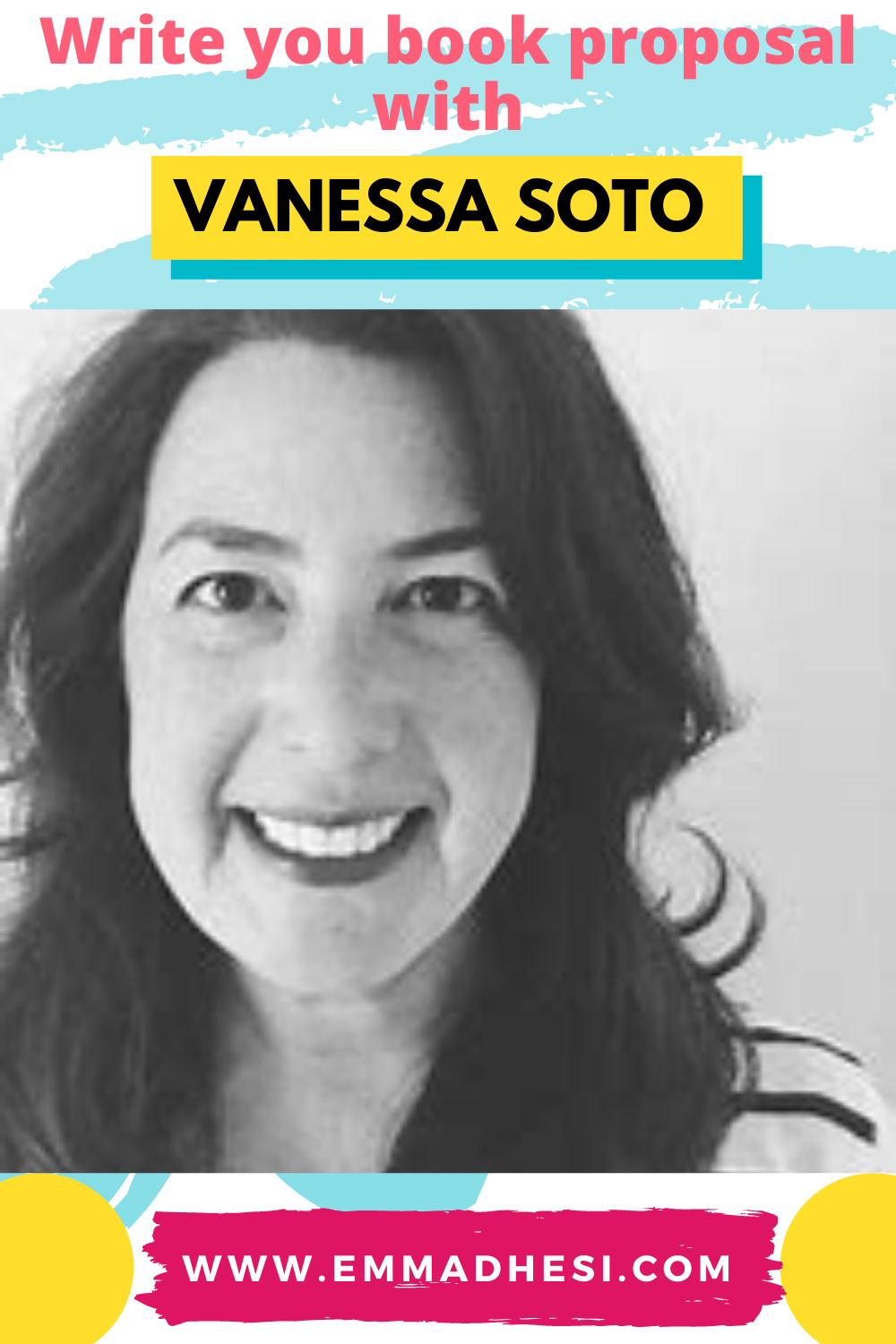
Write your book proposal with Vanessa Soto
Emma Dhesi 18:13
That’s such good advice. I think it works in the fiction world as well. I think that, you know, you might hear somebody say, I’ve got this brand new story note, nothing like this has ever been written before and that can be all very well.
And perhaps it’s true, but the message then comes back. Well, what do we do with it? Where does it sit on the shell?
Vanessa Soto 18:34
Where does it… Yeah?
Emma Dhesi 18:35
Market sets?
Vanessa Soto 18:36
Yeah, yeah. And that can be a little discouraging to people. So I think it’s important to say it and say it again, and have it sink in? Because I think if it doesn’t mean that your book that’s never been heard of before is a bad idea.
It’s how do you reframe that book as? Oh, well, actually, it’s kind of similar to this, but in this different way and, and, and that is what’s new about it?
Emma Dhesi 19:05
Yeah, yeah, exactly. I like that. Yes. So okay, so now they’ve answered these questions. They have a good idea of what they want for their book where it might sit in the world.
And they feel they’re confident and they want to go ahead. What are the different stages of developing a book proposal? What do readers listeners need to think about if they want to put one together, either with vinyl sales or with a coach like yourself?
Vanessa Soto 19:35
Let me think about that. Let’s see the stages would be I think the first stage is kind of what we’ve been talking about this establishment of really what is it’s a very basic level, like what is your idea? And Who is it for? Right so That’s basic, it’s like, you have an idea. Who is it for? And what kind of impact do you want to make with it? Is it really a book is also kind of in there.
So it’s this formulation idea, in terms of how I work with folks, that shapes out into a whole, like 50 page workbook that I call the blueprint and it’s actually yeah, it’s actually something that I have my clients work through over a number of months before we even start working together and then they it’s like, the first deadline is they bring this workbook to me and we like hash it out and go through everything and it’s that first step, like this is my book idea.
This is what I think it is and I take it’s kind of like a first stab at, like, every piece of a book proposal also. So it’s really organizing everything you think your book proposal is how I think about it and then you take it apart.
So when I think about the phases of a book proposal, it’s it’s not like, first draft and then polish it, it’s like, what do you think your idea is, and then get some help from someone you really trust?
Who will tell you the truth, and make sure that everything that you’re saying really makes sense to somebody else, and like, take it apart, and then put it back together again, because when I see first draft proposals, because a lot of people will bring me their first draft, and they’ll say, I think it just needs to be polished, like I just need to edit it.
And it’s I, I, I feel like I’m breaking hearts every time. But every time it needs to be started over. And there’s always wonderful nuggets, and the idea is in there and everything.
But um, usually people’s book ideas are so in their own heads. And when you’re taking an idea to a book agent who’s never seen it before, and who has to sell it and it usually needs to be like completely repackaged.
So I think the biggest thing for people to think about when they are writing a book proposal is to remember that you’re writing something that is a lot closer to a business plan, then you’re sweet idea that you love, and it’s so close to your heart.
And that’s like really hard for people. But that’s really what it is, is you’re writing a business plan for your book, it’s a packaging exercise. And it needs to have excellent writing, and it needs to sell your book and it needs to sell you and it needs to perfectly position your book in the marketplace.
And all those things are not things that writers think about and then and because they’re not like why would you think about those things and nonfiction writers sometimes think about those things more depending on what their background is, like, let’s say you have a, you know, nonfiction, writers background might be in business, right? So they might come more naturally that.
But I worked with a client recently who is a entrepreneur, she’s a coach, like a life coach. And she actually, you know, does quite a bit of business oriented work.
But she said to me, the section where we did the market analysis, where you have to position, you know, who are the people who will buy this book, she wrote something like, I don’t even know how I would have written that, without your help, because it would never have occurred to her to approach it in the way that we did.
Which was to think about what are the things that are going on in the world right now that make your book? Um, you know, kind of relevant and, and, and right, so it’s just stuff like that. It’s just, it’s just it’s how would you know, right? You’re not like writing a book proposal every day.
Emma Dhesi 24:33
So yeah, so I was curious about that, you know, what are some of the things like you give us good example there about market analysis? Your client was like, Oh, I didn’t know I would need that.
What are some of the other things that have taken some of your clients by surprise when they realized they couldn’t put this in a book proposal?
Vanessa Soto 24:52
The the marketing plan section is a doozy. So I think it’s I think someone thinks so the sections below proposal that are pretty straightforward. The overview section is like the first part, and sort of the overview for what your book is.
That’s generally pretty well understood. The bio pretty well understood. I’m, I’m thinking about some of the other the market analysis, we talked about that that can be a little tricky. The annotated table of contents, the annotated table of contents, so you can approach this one different ways. So it is a table of contents, which is the flow of your book, right? Like, what is going to be the flow of your book.
But really, what what agents are looking for, and publishers ultimately is like, what is the story arc of your book, so they don’t want to know every detail every chapter, but they want to know, they want to see a shape, they want to see a shape of your book.
So it’s not like the shape. It’s not, you’re not writing, like every single thing that you’re going to put in that chapter, you’re, again, you’re thinking through the eyes of the, through the eyes of the agent who’s reading it, what do they need to know to see the story, and that’s hard, right?
So it’s, it’s thinking through the eyes of the person who’s reading it. So that can that can, you know, be a little challenging them, but I guess if the marketing plan is a tricky one, because like, like the market analysis, it’s not something that most writers or most non marketers are doing every day and the marketing plan is a make it or break it, because, like, we talked about what platform, if you have a ginormous platform of 100,000, Instagram followers, blah, blah, blah, okay, fine, you know, you’re probably going to be getting a book deal and they will give you a marketing team, and they will put everything together for you.
But if you have a middling platform, you are really going to need to put together a plan that’s going to sell your concept and your marketing plan needs to be something that you yourself can execute, like, they’re not going to do it even for you. So a you need to show them that you can, you need to develop a marketing plan, and then you need to be able to execute it.
So you need to show them something that you can actually bring to life. And it’s multi pronged. Like you need to show them how you will use your own platform, how you’ll grow your platform in advance of the book, launch, how y’all also do a lot of outreach, like something like getting on multiple podcasts getting on television, if that’s appropriate, or do like a blog tour, things like that.
So there’s just a lot a lot of pieces that people wouldn’t think of me in a marketing plan.
That’s like a whole expertise that people don’t have. So I think that one, you know, can it can throw people how, how detailed it’s expected to be. So, I tend to go about as many as 10 or 12 rounds of edits on each of these sections with my clients…
Emma Dhesi 28:20
Which is the sections…
Vanessa Soto 28:21
Each section, maybe not, I mean, manuscript edits, maybe two, two rounds, but all the other ones, we go a lot of rounds. Um, it’s hard!
Emma Dhesi 28:34
In your new experience, what are the hallmarks of a good book proposal? stand out to me, it’s very agent, and I’m guessing then this marketing plan is one of them.
Vanessa Soto 28:44
Yeah, they love the marketing, they want to see a robust marketing plan that’s also really authentic, like something that’s, that can actually be accomplished, they don’t want to see a marketing plan that looks amazing, but isn’t, like real, like you can’t actually do it.
So they want to see something that is real, they want to see real connections like real people that you know, that you can actually reach out to and make things happen with. So that would be that would probably fit in there.
So real robust marketing plan. Top of the list with your book proposal, hallmark, you know, hallmarks would just be like, polished, excellently written free of typos. I know that sounds basic, but like, get it proof read.
Make sure that your concept is clear, right. Like you are clear on what your book idea is, you’re saying over and over again, you’re iterating it, you’re not kind of like saying it one way and then like later on kind of saying it a little bit of a different way, which is something that I see a lot of times in first drafts, kind of like, first
I kind of say like this, and I can still be really clear, be really clear, as you’re going as you’re that people will be, agents are looking for clarity, they’re looking for something they can sell, they’re looking for something that’s marketable, they’re looking for something with a market, they learn, they’re looking for you understanding your market, they’re looking for you to have a platform, they’re looking for you to have a vision, you know, for you to, they’re looking for you to be somebody who has a point of view, you have something you really want to say and, and that you’ve been saying it for a while, probably hopefully, for five or 10 years.
I think those are probably some of the key things, some confidence, right, some confidence in your voice, some authority, even if you’re, I’m not gonna say fake it till you make it.
But um, but a little bit of, you know, you might be feeling a little wobbly on this, because it’s scary to put yourself out there. But if you’re putting yourself out there, you know, you’re, you’re putting yourself out there, right. And over time, you’re going to get more comfortable with it so…
Emma Dhesi 31:07
So they had this to it. And I was just thinking about the confidence and you know, being bold in your statements and having your voice is I, I think that I feel like we live in a kind of society now where it’s very difficult to be bold, and to one way or the other, that it’s especially online, you can get vilified for almost anything these days.
Is that are you noticing that in the, in the book proposals you work on people are more reticent these days to really put themselves out on a limb? Or? Or is it just me?
Vanessa Soto 31:44
I don’t know. I mean, I feel like it I feel like, what I’m actually seeing is a lot of people feeling like, you know what, I have been thinking about this book for a while.
And it’s time that I just go ahead and do it. And I’m kind of giving up on feeling like, I’m not enough of an expert and I’m just gonna go ahead and try. And I so I’m actually seeing a little bit more of that. I think since the pandemic, people are feeling like, I’m going to stop waiting.
And I’m just going to go ahead. Right, and, and so I’ve seen more of that. And I think that’s I think that’s really so so then instead sometimes I’ll say, Well, okay, let’s work on your platform and make sure that you’re also at the same time, you know, developing your audience and that kind of thing, because you don’t want to rush but amm…
Emma Dhesi 32:33
They talking about.. I was surprised. Yeah. And there that you. You know, you mentioned six months there that a book proposal can take six months to do is that average? Or is that…
If you’ve been working on your novel for years (perhaps even decades) the maybe it's time to consider working with a coach.
If you have multiple versions of your novel and you don’t know which works best, are scared nobody will like your book and don't feel like a 'real' writer, then my guess is coaching is the right next step for you.
Find out more and sign up for your free Clarity Call here: https://emmadhesi.com/personal-coaching/
Vanessa Soto 32:43
You know, I used to tell clients that it would take four to six months. And that’s just because I work at a certain pace with folks where we work on a two week deadline cadence.
So every two weeks, they submit their pages to me and that’s just kind of the the cadence that I work on, I find that it gives people time for their ideas to formulate, I’ve tried shorter timeframes, and what I find is it feels rushed.
And it feels like we’re just trying to like squeeze things out. And the stretching things out actually gives ideas room to breathe in form.
That’s what I’ve found. So I’m sticking with that. Even though most everybody wants to do it faster, and they think they can do it faster.
Emma Dhesi 33:36
Okay, so that’s good advice there.
I like that you emphasize the point that our ideas need to room to breathe, especially if you’re kind of guiding people on new things they haven’t thought about, or they haven’t given enough clarity to, and having that space will make it feel less pressure they imagine.
Vanessa Soto 33:54
Well, and I will add that some people have completed it faster for sure. And I take them all the way through querying their proposal. So that includes developing developing their query letters and pitching agents.
So it’s a and that blueprint process that I described, so it’s quite a bit.
Emma Dhesi 34:15
Now you offer free consultation to people who are thinking about publishing their book, and what sort of things do you cover in that call?
Vanessa Soto 34:24
Anything that we just talked about today, Really, it tends to be in the area of Should I self published or traditionally published?
That seems that’s that tends to be one of the big topics. Also, I have a first draft does it make you know, does it make sense for us to work together kind of thing sometimes we’ll we’ll we’ll talk about that.
But really, I keep them very open. I am happy to use the time to even just answer questions so on my calendar, I do just offer them and one window of time on Saturday mornings specific time. If that time doesn’t work for them, they can send me a note. And we can try and find another time but but really we can use it however works for them. I’m happy to, to have conversations with folks.
Emma Dhesi 35:10
Fantastic. Now, one of the other things that you do, which you’ve recently started is your podcast.
Vanessa Soto 35:17
Yes!
Emma Dhesi 35:18
Tell us about it!
Vanessa Soto 35:19
She has a book in her is my new podcast, and I am sharing all kinds of guidance tips and advice on all things, publishing and book proposals, you can find it wherever you get your podcasts. And yeah, I would love it, if you would check it out.
It’s it’s a baby podcast just launched in the last couple of months so thanks for mentioning it, Emma. The other thing that if folks are interested in, they can sign up for my monthly newsletter, book notes, they can grab that on my website at Vanessasotobookcoach.com/booknotes, I just send out a monthly first Sunday of the month newsletter.
So if they want to keep in touch that way, they can sign up there.
Emma Dhesi 36:15
That’s lovely. And is there do you? Are you on social media yourself? Is there any way…
Vanessa Soto 36:20
You can find me on Instagram? That’s pretty much where I hang out at Vanessa Soto book coach.com. I’m on Facebook, but I’m not really very active there anymore.
Emma Dhesi 36:33
Well, Vanessa, it’s been really interesting speaking to you. I’ve learned a lot today about the whole publishing world I’ve never investigated before. So thank you so much for sharing your expertise.
Vanessa Soto 36:44
Thank you. Thank you for having me. It was a pleasure. I very much enjoyed it. Thank you.
Emma Dhesi 36:52
Well, thank you so much for joining me today. I hope you find that helpful and inspirational. Now, don’t forget to come on over to facebook and join my group, turning readers into writers. It is especially for you if you are a beginner writer who is looking to write their first novel.
If you join the group, you will also find a free cheat sheet there called three secret hacks to write with consistency. So go to emmadhesi.com/turning eaters into writers. Hit join.
Can’t wait to see you in there.
All right. Thank you.
Bye bye.
Support The Show
If you enjoy the Turning Readers Into Writers podcast, you can now support my time in producing the show with Patreon.
If you find that the podcast adds value and you’d like to help support the show, please consider supporting me on Patreon for $3.00 per month and you’ll get bonus podcast content, as well as a personalised thank you from me, and a shout out on the show.
If this interview with Vanessa Soto was useful, you’ll love:
Shortcuts for Writers


Emma Dhesi
Emma writes women’s fiction. She began writing seriously while a stay at home mum with 3 pre-school children.
By changing her mindset, being consistent and developing confidence, Emma has gone from having a collection of handwritten notes to a fully written, edited and published novel.
Having experienced first-hand how writing changes lives, Emma now helps beginner writers find the time and confidence to write their first novel.


